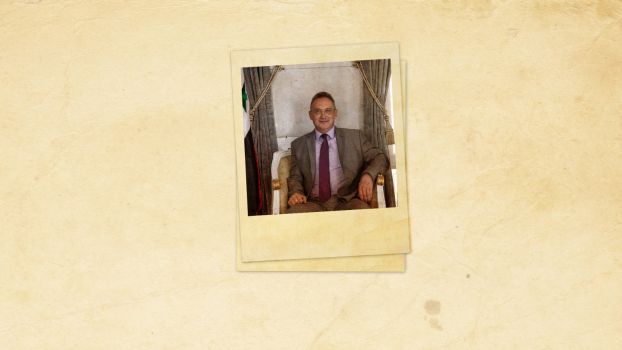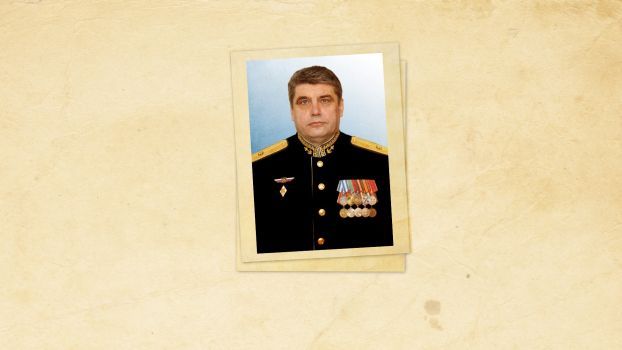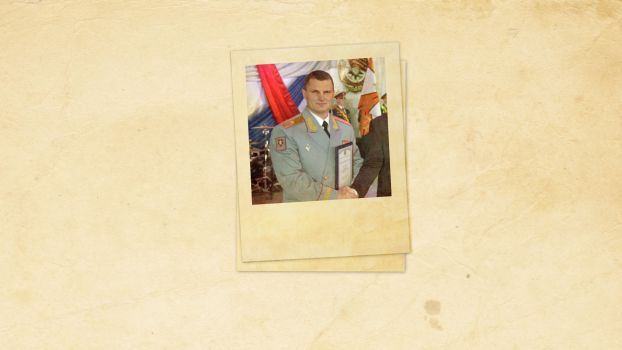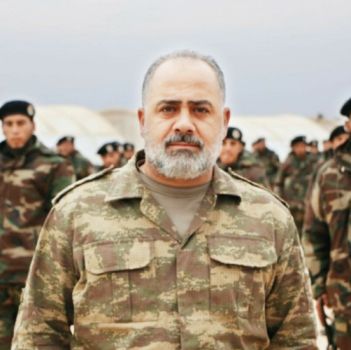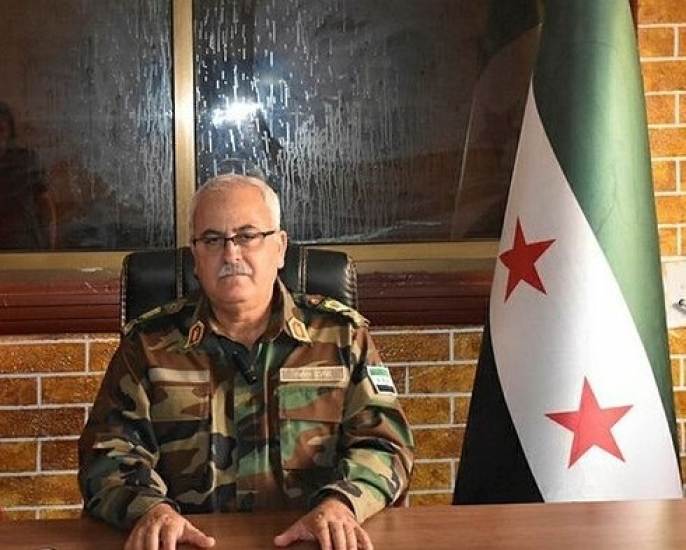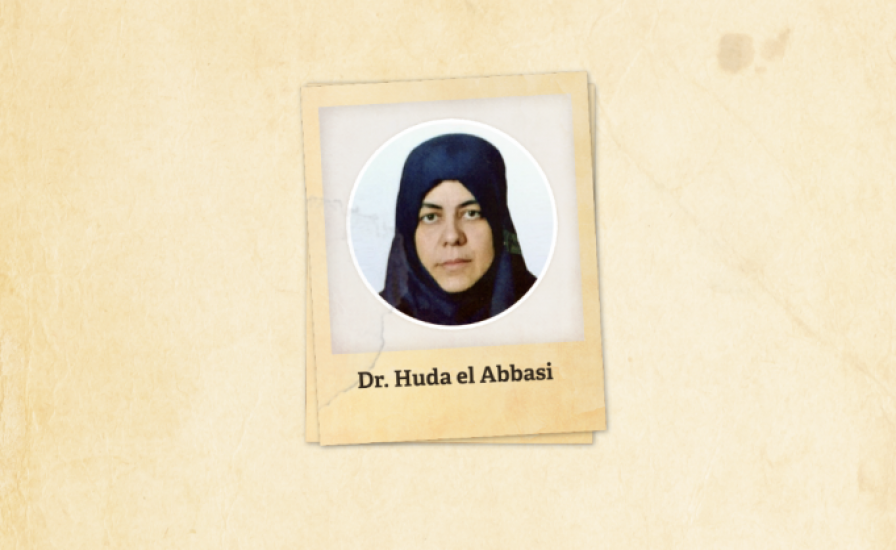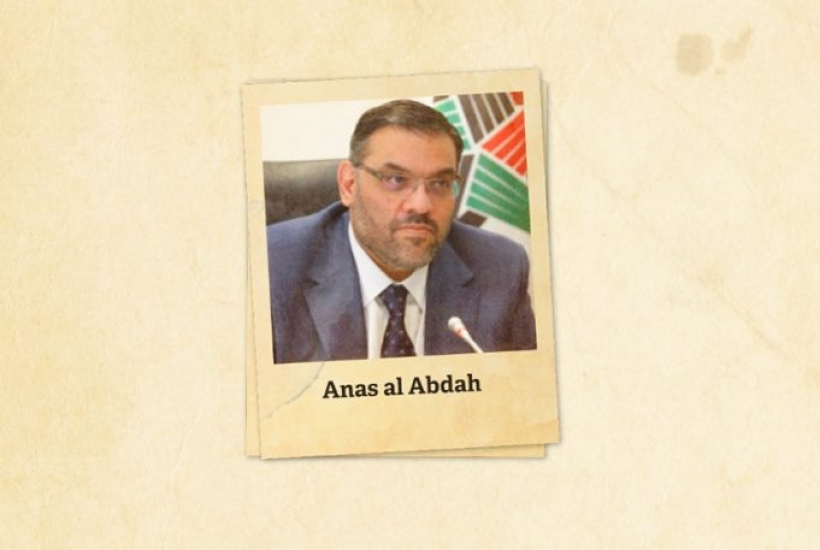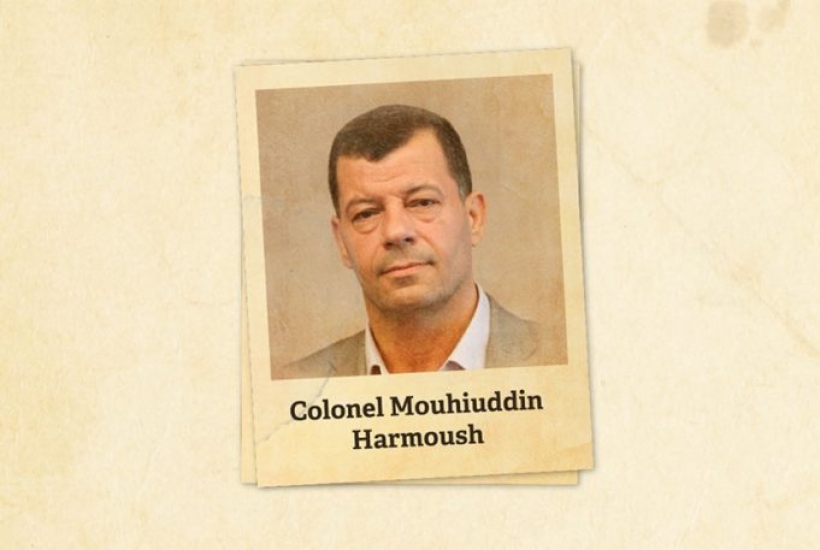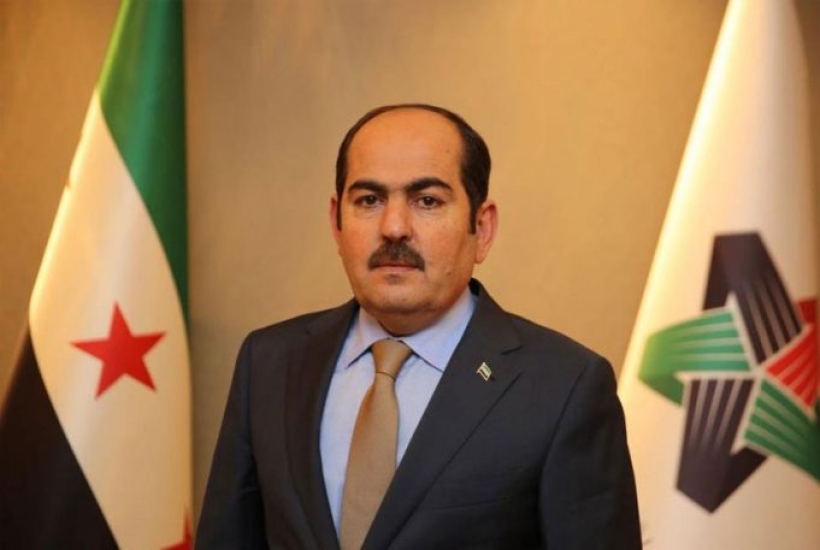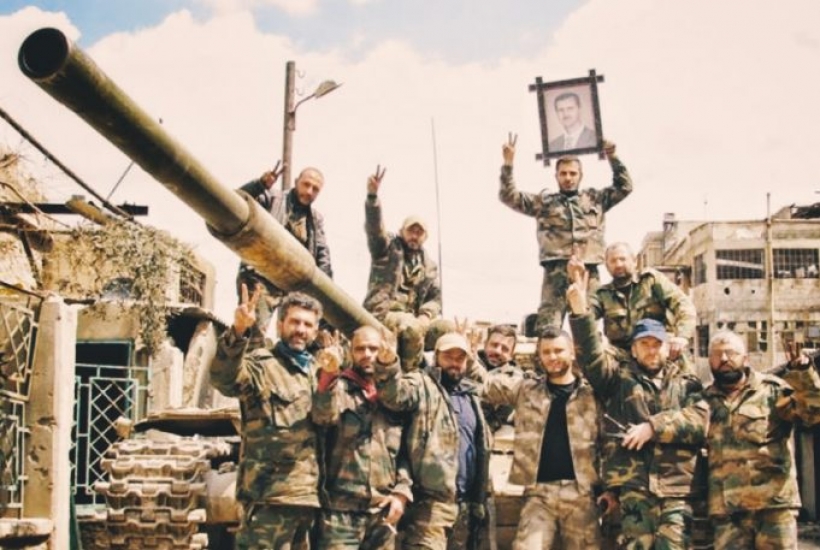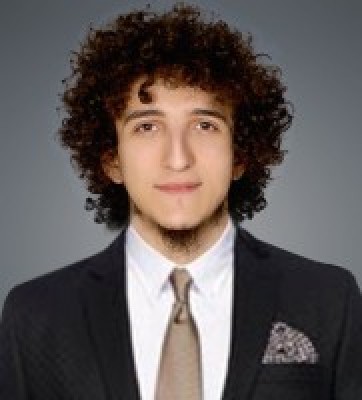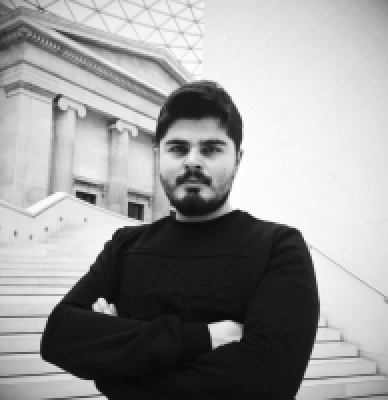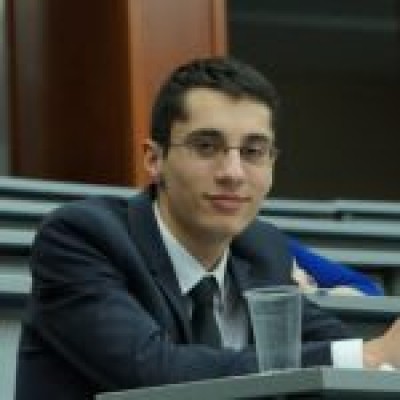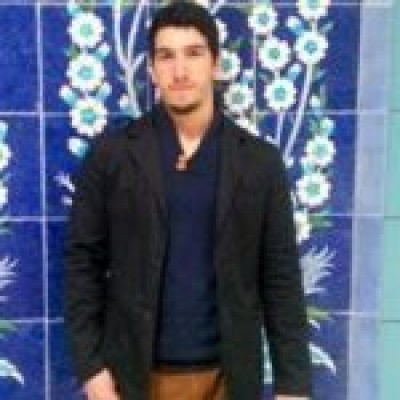Who is Who?
Russian Foreign Ministry’s Envoy for Syria: Alexander Kinschak
Alexander Kinschak - Russian Foreign Ministry’s Envoy for Syria
Alexander Kinschak was born in 1962. He graduated from the Moscow State Institute of International Relations in 1988 and started to work in the Ministry of Foreign Affairs.
Kinschak was an advisor-envoy at the Russian Embassy in Baghdad from 2002 to 2004.
In 2006 he started working as a Deputy Director of the Middle East and North Africa Department at the Russian MFA.
Afterward appointed by a presidential decree in 2008, he held the position of Ambassador of Russia to Kuwait. Furthermore, he was an Ambassador of Russia to the Syrian Arab Republic in 2014-2018.
Upon his return from Syria in November 2018 Kinschak was appointed to the position of Director of the Middle East and North Africa Department at the MFA of Russia.
Russian MFA Sergei Lavrov appointed him as Foreign Ministry’s Envoy for Syria on October 8, 2020, making it the fourth Russian envoy to the country.
Head of the Centre for Reconciliation of Opposing Sides and Refugee Migration Monitoring in the Syrian Arab Republic: Counter Admiral Oleg Zhuravlev
Counter Admiral Oleg Zhuravlev[1] was born on December 14, 1963, in the city of Mary, Turkmen SSR.
He has graduated from the Kaliningrad Higher Naval School in 1986, the N.G. Kuznetsov Naval Academy in 1999, and the General Staff Military Academy in 2010.
Zhuravlev held military service in positions of battery commander of the large anti-submarine ship “Tallinn”, commander of the missile and artillery warhead of the patrol ship “Proud”, commander of the missile and artillery warhead of the large anti-submarine ship “Admiral Tributs”, senior assistant to the commander of the large anti-submarine ship “Admiral Tributs”, the commander of the large anti-submarine ship "Admiral Spiridonov", and the commander of the large anti-submarine ship "Admiral Vinogradov".
He also held positions of chief of staff, deputy commander of a brigade of amphibious ships, commander of a brigade of amphibious ships of the Pacific Fleet.
Moreover, Zhuravlev served as a deputy commander of the Caspian Flotilla, chief of staff, first deputy commander of the Baltic Naval Base, a commander of the Leningrad naval base of the Baltic Fleet, and ahead of the naval administration of the Western Military District.
Zhuravlev was appointed head of the Pacific Higher Naval School named after S.O. Makarov in December 2007. Since February 2020 he is appointed as the head of the Centre for Reconciliation of Opposing Sides and Refugee Migration Monitoring in the Syrian Arab Republic.
He is awarded nine medals of the Ministry of Defense of the Russian Federation.
[1] “Журавлёв Олег Владимирович.” Accessed August 26, 2020. http://tovvmu.mil.ru/O_VUZe/Rukovodstvo/item/39690/
Russian Major General Killed in Deir Ezzor: Vyacheslav Gladkikh
Vyacheslav Vladimirovich Gladkikh was born in 1975 in Kovrov, Vladimir region, Russia.
He was a commander of the 522nd Guards Training Tank Regiment of Riga.
Gladkikh had also served as head of the Chebarkul garrison.
He was the commander of the 7th Special Guards Tank Orenburg Cossack Brigade.
Served as the commander of the 21st special guard motorized rifle brigade.
Vyacheslav Gladkikh held a rank of a Deputy Commander of the 36th Combined Arms Army and served in the Trans-Baikal Territory.
Received a commendation from the Governor of the Orenburg Region "for exemplary performance of official duties and in honor of the Defender of the Fatherland Day" on February 18, 2016.
The rank of major general was awarded to Vyacheslav Vladimirovich by the decree of the President of the Russian Federation of 12.12.2016.[1]
Soon after becoming Major General, Gladkikh was sent to Syria, where he took part in the Russian military operation as a senior military adviser to the Syrian Armed Forces.
Russian Major General Vyacheslav Gladkikh died on August 18, 2020, as a result of the IED explosion near the At-Taym oil field in Deir Ez-Zor, Syria.
[1] “Указ Президента Российской Федерации От 12.12.2016 г. № 665.” Accessed August 19, 2020. http://kremlin.ru/acts/bank/41472
Spokesman of the Syrian National Army Youssef Hamoud
Youssef Khaled Hamoud was born in 1975 in the Jabal al Zawiyah region of Idlib.
At 1997, he graduated from the Air College of the Air Institute with a pilot’s jurisdiction to fly L-39, Mig-21 and Su-24 fighter jets. In 2007, he absolved from the squadron leader course in the Syrian Arab Army.
In 2012, Major Hamoud defected from the Assad regime and joined the armed Syrian opposition factions in the countryside of Aleppo as part of the Aleppo Revolutionaries Operation Room. Later on, he became a commander of the 101st Infantry Division and operated in the Mountains of Latakia.
Youssef Hamoud later joined Firka Hamza and became the Chief of Staff of the group. He commanded the fighters of Firka Hamza within the ‘Counter-Islamic State of Iraq and Syria Train and Equip Fund’ program and the Euphrates Shield Operation against Daesh.
As Chief of Staff of Firka Hamza, Hamoud was a member of the founding council for the Syrian National Army. With the formation of the Syrian National Army, Hamoud was chosen as Chief of Staff of the second legion.
In November, 2018, Yousef Hamoud was chosen as the military spokesman As spokesman, Hamoud was and is in charge of the Media Office of the Syrian National Army during the Olive Branch and Peace Spring Operations against the YPG.
Defense Minister of the Syrian Interim Government And The Chief Of Staff: Salim Idris
Salim Idris was born in 1957 in the village of El-Mubarakiya located east of Humus.
He graduated from the Electrical Engineering Department of the University of Aleppo. He also holds master degree in Information Technology from the Higher Institute of Transportation and Communications in Eastern Germany.
He did his doctoral thesis in the field of “Electronic radars”.
Salim Idris knows 3 programming languages and speaks 5 languages, including English.[1][2]
In parallel with his academic studies, he also received military training. In Aleppo he served as an instructor of the Assad Military Academy and later as a director of the Institute of Engineering within the same Academy.
He authored about 12 books on military issues and wrote the article titled ‘Give us the weapons we need to beat Assad’ for Foreign Policy Magazine.[3]
From July, 1979 until 2012 he served in Syrian Armed Forces and left the duty as a brigadier general.[4]
On December 15, 2012 he was elected as the Chief of Staff of the Syrian Supreme Military Council and took the office of the Commander of the Free Syrian Army at the conference organized in Turkey aiming to unite military wings of the Syrian opposition. Thus, he sided with the opposition in Syrian Civil War.[5]
In 2014, Idris left his post as the Chief of General Staff of Free Syrian Army.
In 2019 Idris was appointed as a Defense Minister of the Syrian Interim Government and he became the Chief of Staff of the Syrian National Army.[6]
[1] ‘’Özgür Ordu Genelkurmay Başkanı Salim Idris’’,Aljazeera, 18 June 2013
https://www.aljazeera.net/news/reportsandinterviews/2013/6/18/%D8%B1%D8%A6%D9%8A%D8%B3-%D8%A3%D8%B1%D9%83%D8%A7%D9%86-%D8%A7%D9%84%D8%AC%D9%8A%D8%B4-%D8%A7%D9%84%D8%AD%D8%B1-%D8%B3%D9%84%D9%8A%D9%85-%D8%A5%D8%AF%D8%B1%D9%8A%D8%B3(Accessed: January 7, 2020).
[2] Enab Baladi, “Three Syrian Regime Defector Commanders In Charge of The National Army, Who Are They?”,Enab Baladi, 7 November 2019 https://english.enabbaladi.net/archives/2019/10/three-syrian-regime-defector-commanders-in-charge-of-the-national-army-who-are-they/(Accessed: January 7, 2020).
[3] Selim İdris,‘‘Give Us the Weapons We Need to Beat Assad’’,Foreign Policy, 1 Mart 2013 https://foreignpolicy.com/2013/03/01/give-us-the-weapons-we-need-to-beat-assad/(Accessed: January 8, 2020).
[4] Christopher M. Blanchard ve Mary Beth D. Nikitin, ‘’Armed Conflict in Syria: Overview and U.S. Response’’,Congressional Research Service, 25 March 2018 https://fas.org/sgp/crs/mideast/RL33487.pdf(Accessed: January 8, 2020).
[5] Elizabeth O’Bagy ,‘’The Free Syrian Army’’,Institute for the Study of War, Middle East Security Report, March 2013 http://www.understandingwar.org/sites/default/files/The-Free-Syrian-Army-24MAR.pdf(Accessed: January 7, 2020). And see also: ‘’Free Syrian Army replaces chief-of-staff Salim Idris’’ ,BBC, 17 February 2014 https://www.bbc.com/news/world-middle-east-26224498(Accessed: January 7, 2020).
[6] Eşber Ayaydın, ”Suriye’deki Milli Ordu ve Ulusal Kurtuluş Cephesi birleşti”,Anadolu Ajansı, 4 October 2019, https://www.aa.com.tr/tr/dunya/suriyedeki-milli-ordu-ve-ulusal-kurtulus-cephesi-birlesti/1602325(Accessed: January 9, 2020).
Minister of Education of the Syrian Provisional Government: Dr. Huda al Abbasi
Dr. Huda al Abbasi was born on May 17, 1976 in the town of Nahla under the province of Idlib.
She is married with 5 children. Her Husband Dr. Iyad Hamade (PhD) is an Information Systems and Statistics Specialist.
In 2000, Abbasi received her BA degree from the History Department of the Aleppo University. Later on, she did Master on the Arabic and Islamic History at the University of Damascus and completed her degree in 2006 with honors.
Abbasi continued her doctoral studies without interruption and completed her PhD in Arabic and Islamic History at the same university in 2009 with a high honor degree.
Along with her education, she has participated in many conferences as a speaker and published various articles in different academic journals.
After completing her PhD in 2009, Abbasi started to work as an assistant at Aleppo University.
Following the Syrian uprising that began in 2011, demonstrations were started among the students against the Syrian regime. Thus, Abbasi resigned from her job.
After Idlib was seized by the Syrian opposition forces in 2015, she started to work at Idlib University.
In 2019, she was appointed as the Minister of Education of the Syrian Provisional Government in the cabinet established by Prime Minister Abdurrahman Mustafa.
National Coalition of Syrian Revolution and Opposition Forces (SMDK) Anas Al Abdah
National Coalition of Syrian Revolution and Opposition Forces (SMDK) Anas Al Abdah
Anas Abdah was born in 1967 in Damascus. Abdah studied Geology at the Yarmouk University of Jordan and then he did a Master’s in Geophysics at the University of Newcastle in the UK. Before starting his political career, he worked as a manager in international companies operating in the field information technology. He is fluent in Turkish, English and Arabic.
In 2006, Abdah started to focus on more of his political activities. Moreover in the same year, with the participation of many activists from inside and outside Syria, he founded the Movement for Justice and Development which was opposed to the Assad regime. Soon after, he joined the Damascus Declaration and served as a representative of the Declaration abroad.
After the outbreak of the Syrian uprising, Abdah contributed to efforts aimed at the unification of the Syrian opposition in 2011 by co-founding the Syrian National Council. Following this process in 2012, Abdah played a major role in the establishment of the National Coalition of Syrian Revolution and Opposition Forces (SMDK) and joined the Coalition.
Abdah was elected a member of the Syrian Coalition’s political committee for more than one term. He was a member of the opposition’s negotiating delegation to the Geneva II conference in 2014. Abdah was elected as Secretary of the political committee in the period between July 2015 and March 2016.
At the 46th Ordinary General Assembly held in Istanbul, instead of Abdurrahman Mustafa whose SMDK presidency term has expired, Anas Al Abdah has been elected as the new President of the SMDK (received 75 of the votes out of 82). He is also a member of the Syrian Constitutional Commission.
Minister of Interior Affairs of the Syrian Interim Government: Colonel Mouhiuddin Harmoush
Minister of Interior Affairs of the Syrian Interim Government: Colonel Mouhiuddin Harmoush
Mouhiuddin Harmoush was born in 1965 in the Duma district of Damascus. After completing his bachelor’s degree in Law Faculty at the University of Damascus, Mouhiuddin joined the Syrian Ministry of Interior Affairs in 1987.
He received various training at the Police Academy and was promoted to the rank of lieutenant colonel in 1991.
Until 2004, he worked in the Criminal Security branch of Daraa Governorate. Subsequently, he worked at the Drug Enforcement Department in Damascus until the end of 2004 and was promoted to Lieutenant.
He joined the Political Security Agency in early 2005. Here he governed the Katana sub-unit, one of the Western suburbs of Damascus, where he led research and economic security branches.
In 2009, he was appointed as the Head of the Department of Political Security at the Governorate of Deir ez Zor and served as Colonel until the end of 2011.
On December 30, 2011, he continued his professional career as the Head of Branch at the Political Security Unit of Hama Governorate. One year after assuming the Head Branch duty, Colonel Mouhiuddin resigned as a response to the crimes committed against the people by the regime
Since 2019 Colonel Mouhiuddin has been serving as the Minister of Interior Affairs in the Syrian Interim Government
The Prime Minister of the Syrian Interim Government: Abdurrahman Mustafa
The Prime Minister of the Syrian Interim Government: Abdurrahman Mustafa
Abdurrahman Mustafa originates from Jarablus and was born in Aleppo in 1964. Mustafa is married and fathers three children by the names of Serdar, Ayhan and Caner. He speaks the Arabic, English and Turkish languages.
The Ottoman officer Mustafa Namık Bey, who was the founder of Afrin and the district governor of the town of Mabatlı, which is tied to Afrin in the present, is the uncle of Abdurrahman Mustafa.
Abdurrahman Mustafa has finished his elementary school and highschool education in Aleppo and graduated from Aleppo University’s Faculty of Economics.
Between the years of 1988-2010, Mustafa held senior executive posts in the private sector in Turkey, Bulgaria, Libya and Saudi Arabia. When the developments unfolded in Syria in the year of 2011, he quit his job and returned to Syria.
In the period of 2011-2012, he played an active part in political activities organized by the Syrian Turkmen and was the delegate for Aleppo at the 1. Turkmen Platform in Istanbul.
In 2013, he was a founding member of the Syrian Turkmen Council. In 2014, he was the deputy head of the Syrian Turkmen Council’s Executive Board until he was appointed as its head.
As the head of the Syrian Turkmen Council, in February 2016 he attended the Geneva talks and met the UN’s Special Representative for Syria De Mistura. He was superseded by Dr. Emin Bozoğlan when the Executive Board met on the 26th and 27th of May 2016.
At the Astana talks held in January 2017, he attended as the political representative of the FSA’s Sultan Murad Brigade. Mustafa was appointed as the deputy head of the Syrian National Coalition for the Syrian Opposition and the Revolutionary Forces in May 2017.
Abdurrahman Mustafa was appointed as the head of the SNC after Riad Seif offered his resignation due to health reasons on the 9th of March 2018. At the meeting of the Executive Board of the SNC on the 5th and 6th of May 2018, he was again chosen as its head.
In the elections held on June 2019, under the auspieces of 46th Ordinary General Assembly, Abdurrahman Mustafa was elected as the President of the Syrian Interim Government (Recieved 54 votes out of 82).
4th Armored Division
4th Armored Division
4th Armored Division was established in 1984, after the coup attempt against Hafez al-Assad.[1]
The unit was established to protect Syria against internal and external threats and it includes one of the best equipped units of the Syrian Arab Army.
It is known that most of the commanders in the unit are former Syrian Army commanders and that 80% of the division is formed by Nusayris, the main aim of the unit is to protect the regime.
The commander is technically Major General Muhammad Ali Durgham, but Bashar al-Assad’s brother, Mahir al-Asad, acts as the commander of the division, despite his title as Commander of the 42nd Armored Brigade.[2]
The 40th, 41st and 42nd Armored Brigades, the 138th Mechanized Brigade, the 154th Artillery Regiment and the 555th Special Forces Regiment, are considered to have around 1.500 military forces.
In Damascus, strategically located in the Mezzah military complex, the unit has taken part in many clashes with the opponents of the regime and with ISIS.
Assuming active duties in Damascus and its environs, this division strengthened its dominance in the regions such as Deraya, Mudamiye and West Gouta in 2016.
At the same time, Maher al-Assad was also held responsible for the chemical attacks in Gouta in August 2013, which caused the death of nearly 1500 people.[3]As a matter of fact, the reports stated that the sarin-filled rockets used in the attacks were fired by the units attached to the 4th Armored Division.[4]
The United States and the EU said that the Syrian regime played a leading role in the actions in Daraa, and announced that it had decided to sanction Maher al-Assad and many Syrian Army commanders.[5]
On January 23, 2019, the UK sanctions list included several senior commanders in the 4th Armored Division and Maher al-Assad linked people.[6]
In Syria, the alliance has carried out attacks against dissidents with the aid of Hezbollah and Iraqi Shiite militias.[7]
The 4th Armored Division, located in Idlib, violated the boundaries of the tension reduction zone.
In January 2019, the 4th Armored Division clashed with the Tiger Forces and the 5th Armored Division, which was affiliated to the Syrian Army and supported by Russia.[8]
Source:
[1]“The 4th Armoured Division of the Syrian Arab Army: History and Capabilities” https://southfront.org/4th-armoured-division-syrian-arab-army-history-capabilities/[2]By All Means Necessary: Individual and Command Responsibility for Crimes against Humanity in Syria,” Human Rights Watch, December 2011, p. 83.[3]Terry Atlas and Sangwon Yoon, “Assad’s Brother Seen Linked to Syria Chemical Attack”, Bloomberg. Access of date: February 3, 2019. https://www.bloomberg.com/news/articles/2013-08-27/assad-s-brother-seen-linked-to-syria-chemical-attack[4]Gregory Koblentz, “Syria’s Chemical Weapons Kill Chain”, Foreign Policy, access of date February 3, 2019. https://foreignpolicy.com/2017/04/07/syrias-chemical-weapons-kill-chain-assad-sarin/[5]“Bashar al-Assad’s inner circle”, BBC, Access of date: February 4, 2018 http://www.bbc.co.uk/news/mobile/world-middle-east-13216195[6]“CONSOLIDATED LIST OF FINANCIAL SANCTIONS TARGETS IN THE UK”, January 23, 2019.[7]Suleiman Al-Khalidi, “Syrian army and allies step up bombing of rebels in Deraa city”, Reuters, access of date: February 4, 2019. https://www.reuters.com/article/us-mideast-crisis-syria-deraa/syrian-army-and-allies-step-up-bombing-of-rebels-in-deraa-city-idUSKBN19305V[8]“Pro-Iranian and pro-Russian forces clash in Syria”, UAWIRE, access of date: February 4, 2019 https://uawire.org/pro-iranian-and-pro-russian-forces-clash-in-syria

